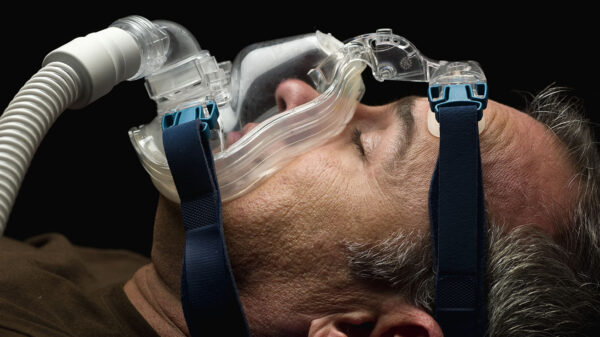Last week, Sunnybrook Hospital became the first Canadian institution to sell cannabis products directly to patients, setting a precedent that could provide some much-needed improvement to the country’s ailing medical access regime.
The medicine is being supplied by Avicanna Inc (TSX: AVCN) (OTCQX: AVCNF) (FSE: 0NN) and will be available at Sunnybrook’s Odette Cancer Centre pharmacy with a written order from a health care practitioner.
The program includes an educational component led by the company, aimed at health care practitioners and patients.
Under Canadian regulations, regular pharmacies can’t sell cannabis goods direct-to-consumer, but hospitals have a unique ability to authorize on-site pharmacies to carry and sell medical pot.
Sunnybrook’s cannabis program will inspire other medical institutions to follow suit, experts say, which in turn will improve access for patients.
With limited access points, high prices and numerous product restrictions, buy in to Canada’s medical cannabis access scheme is low. Recent data show that participation at best isn’t increasing, and at worst is on the decline.
Read more: Canada’s flawed medical cannabis regime sees drop in client registrations
Read more: Imagining an inclusive system for Canada’s cannabis patients
Sunnybrook deal could lead to more medical cannabis access at hospitals and other institutions
Avicanna and Sunnybrook Hospital’s pharmacy team at the Odette Cancer Centre have been working together on this project for the past year, explains Karolina Urban, VP of medical programs at the cannabis company.
“The cannabis care consultation service at Sunnybrook Hospital started by prescribing Avicanna’s RHO Phyto products through the Medical Cannabis by Shoppers online platform for their patients and it quickly became apparent that in order to ensure that Sunnybrook Hospital patients get the best care possible it would be important to have the products onsite,” she tells Mugglehead in an email.

Avicanna’s RHO Phyto product line is available exclusively through Medical Cannabis by Shoppers. While restrictions prohibit the company from listing specific treatment indications, common uses of medical cannabis are related to symptom management of pain, difficulty sleeping, anxiety or depressed mood. Photo via Avicanna
Under the new arrangement, Shoppers will continue to supply Avicanna’s RHO Phyto line, but the products will be held on site at the hospital’s pharmacy. A health care practitioner will decide the specific cannabinoid ratio, delivery form and recommend dose for the patient.
Then the patient will be able to pick up the product from the pharmacy.
“This is more consistent to the typical prescription model where the health care practitioners are making the decisions on particular products,” Urban says.
Medical cannabis products in Canada are excluded from pharmaceutical supply chains, a fact that advocates have been calling on regulatory bodies to change.
This exclusion reduces access points compared to other medicine, but it also introduces safety issues because medical cannabis sellers don’t have access to patient records like pharmacies do. Some medications don’t interact well with cannabis.
“Previously, patients would have to get products on their own and unfortunately in the case of complex care, this could lead to negative consequences and or effect patients standard of care,” Urban notes. “Sunnybrook Hospital Cannabis Care consultation services will be able to provide complete care for the patients and ensure that cannabinoid-based products are safe and appropriate for care.”
The select few licensed pharmacies that do sell cannabis, like Hybrid Pharm in Ottawa, have undergone a lengthy application process and can’t tailor individual prescriptions in the way they do with other medicine.
But subsections 272 and 348 of the Cannabis Regulations make it so hospitals can offer these services.
“Also note that the definition of hospital in the Cannabis Act is really broad,” says Deepak Anand, vice chair of advocacy group Medical Cannabis Canada and CEO of Materia Ventures.
“I would expect others to pick up on this and do something,” he continues. “Which would be great for medical cannabis patients.”
Under the Cannabis Act, a hospital is a facility:
- that’s licensed, approved or designated by a province to provide care or treatment to individuals suffering from any form of disease or illness; or
- that’s owned or operated by the Government of Canada or a provincial government, and provides health services.
Anand says provincial legislation should be reviewed to see what institutions would satisfy the definition, and could likewise carry and sell medical cannabis on site.
Mainstreaming cannabis care increases patient safety and decreases stigma
Avicanna is also providing an educational component to Sunnybrook related to its products, and will support the hospital’s general education and awareness efforts related to medical cannabis.
The company says it will work with designated staff to educate health care professionals and registered patients about its products.
“Patients have questions about and want access to plant-based cannabinoids, and that requires healthcare professionals to become knowledgeable about the use of cannabinoids for medical purposes,” says Carlo DeAngelis, pharmacist and researcher at Sunnybrook’s Odette Cancer Centre.
“Our primary goal is patient safety,” he said in a statement. “This collaboration will help us ensure patients have access to plant-based cannabinoid products of high quality as well as provide education focused on dosing, monitoring of symptoms and effects on concurrent anti-cancer treatments.”
Urban commends Sunnybrook for taking the lead and challenging the barriers and stigma associated with the use of cannabis for medical purposes.
“We are hopeful that products being available to patients directly under the care of health care practitioners will lead to a change in the acceptance of medical cannabis as a viable option of patients,” she says.
“In addition, we hope that this provides further opportunity to continue researching cannabinoid-based products so that dosing and delivery forms become better understood for targeting specific symptoms or therapeutic indications.”
nick@mugglehead.com














